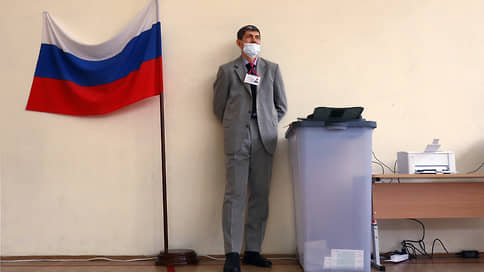Experts found many advantages and “boring campaigning” in the 2023 regional elections
[ad_1]

The current regional campaign reflects the “normality” of the socio-political situation in Russia – this was the conclusion of the round table of the Expert Institute for Social Research “Elections 2023: the active phase of the campaign” on Thursday. The election commissions are as loyal as possible to the candidates, the elections are held in conditions of patriotic consensus, and their participants retain their individuality in choosing political approaches, the experts listed the symptoms of this “normality”. They only complained about “boring agitation”.
The round table opened in a positive way. Political scientist Anna Fedorova, who served as a moderator, praised the parties for their high activity and high-quality work with documents, highlighting the increase in their activity as they “approach” voters (from 7 parties in by-elections to the State Duma to 18 in municipal elections). “This is an indicator that our party system is functioning in a healthy way,” she stressed.
Maxim Grigoriev, the first deputy chairman of the Public Chamber commission on public control, pointed to the “clear strategic patriotic consensus” that does not prevent the parties from “preserving the individuality of politics” and “building up political and organizational potential.” He also noted the record low level of refusals to register (less than 1.5% of the number of nominated candidates) and the “friendly” work of the election commissions. The exception was Khakassia, where the Central Election Commission of the Russian Federation had to take over the functions of the republican commission in order to restore justice, Mr. Grigoriev complained.
Kirill Petrov, an expert at Minchenko Consulting, drew attention to the election battles in Yakutia, where United Russia is actively opposed by New People in the parliamentary elections, and to the gubernatorial race in Khakassia. “This is probably the most competitive campaign in three or even four years: the candidates are running side by side, the outcome of the elections has not yet been determined,” he explained.
The representative of the Russian Association of Political Consultants in the Siberian Federal District, Igor Kuznetsov, expressed his conviction that almost every 2023 campaign can arouse the interest of the voter. “Often there is an opinion that the default referendum campaign is boring and cannot be bright,” he recalled. And he immediately refuted this conclusion, stating that “due to reality” the voter does not have a request for “bright political shows and battles”, but “there is a request for stability, for a clear image of the future.” Therefore, the expert believes, it is important to draw the attention of citizens to the results already achieved (if we are talking about the re-election of current heads) or to “positive expectations” from the arrival of new people in the person of acting governors.
The only negative that the participants of the round table identified in the 2023 campaign is “boring campaigning”. According to Valery Prokhorov, deputy director of the Center for Applied Research and Programs, candidates “have a certain level of subjective fear: how not to harm, not to say too much, not to compromise themselves or someone else.” Among the rare “bright spots”, he, in particular, named the announcement of the Khakass pre-election debates in the style of a rap battle, “neurozhirinovsky” from the Liberal Democratic Party, explanatory comics of United Russia and media presentations of the communist Leonid Zyuganov at the Moscow mayoral elections. The crisis in campaigning, according to the expert, is caused, among other things, by the paucity of campaign budgets and “is exacerbated by the effect of a mass grave of monotony”: “Everything is about the same, there are no bright things, because there is apparently no request and technical task.”
“Elections are an indicator of the normality and stability of the political situation,” Natalya Lindigrin, director general of the Institute of Regional Problems, returned to the positive. “And our country once again demonstrates normality and stability.” Voters, she is sure, are still consolidated around the presidential vertical and demonstrate an “extremely low” level of protest activity. “The information background is calm, campaigns are conducted with varying degrees of brightness, there is competition, public observers are involved, there are no violations. All this speaks of the legitimacy of the electoral process,” Ms. Lindigreen summed up optimistically.
[ad_2]
Source link








